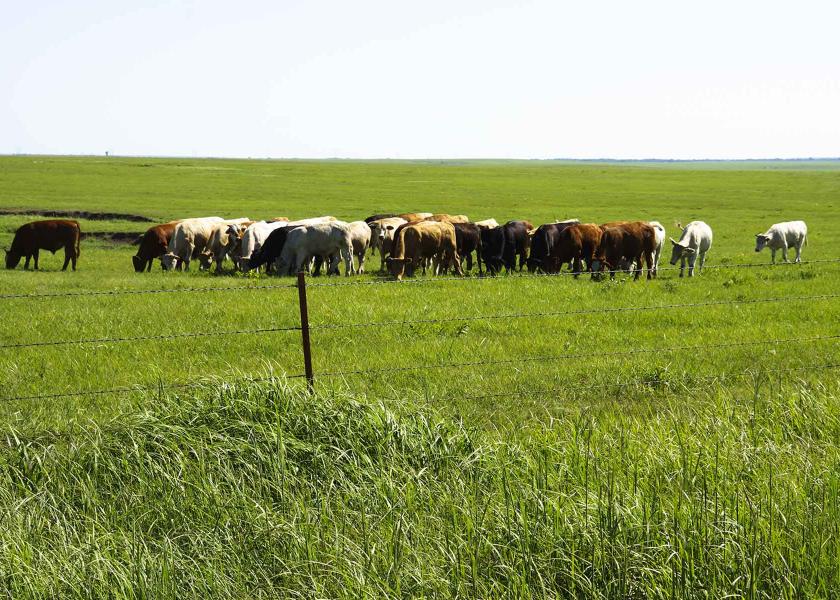Kansas Flint Hills Lease Rates 2021

Pasture lease rates in the Flint Hills of Kansas were reported 2% to 3% higher in 2021 compared to 2019, according to the Kansas Department of Agriculture.
The average lease rate for a 600-pound steer grazing a full summer season in 2021 was $144.80 per head with care, compared to $139.60 per head in 2019 (+3.6%). The average lease rate for a 600-pound steer grazing a short-summer season was $93.39 per head with care, compared to $91.58 in 2019 (+2%).
Lease rates in the Kansas Flint Hills often provide a barometer for pasture lease values in other regions due to the comprehensive data collected in the survey, now conducted every two years by KDA and Kansas State University’s department of Agricultural Economics. The Flint Hills consist of nearly 10,000 square miles in eastern Kansas and northern Oklahoma which represent the last expanse of intact tallgrass prairie in America.
The Bluestem Pasture surveys conducted by KDA include data from landowners (39%), livestock owners (29%), livestock care providers (14%), and land managers (18%) covering a 14 county region in eastern Kansas. Lease rate data collected include: season-long grazing; ¾ summer season grazing; and short-summer season grazing. Lease rates are reported for 600-pound steers/heifers and for a 1,250-pound spring calving cow with calf. Rate data are also collected for all of those categories “with care” and “without care.” The stating date for most summer grazing contracts is May 1, and a typical season-long end date is Oct. 31. For short-season grazing the mode end date was August 1, and the ¾ season grazing mode end date is Sept. 1.
The lease rate for a 600-pound steer without care in a season-long grazing program in 2021 was $118.60 per head. Full-season grazing contracts allow 5.4 acres for those yearling steers/heifers, while short-season grazing contracts allow 3.0 acres, and ¾ season grazing contracts allow 3.8 acres per head.
For cow-calf pairs, the Bluestem Pasture report found the average price was $267.40 per set in a season-long grazing contract where care is provided and an average of 7.9 acres provided. Without care the cow-calf lease was $192.87 per pair.
For pairs in a short-summer grazing contract without care the average lease was $123.67 and an average of 5.2 acres provided.
Nintey-six percent of the available pasture was reported to be under contract in the 2020-2021 season. By lease type, 19.4% of respondents had short-summer leases, and 49.5% had full-summer leases.
Of the acres that respondents had contracted, 37.9% were under full-summer season contracts; 39.8% were under short-summer season contract for early-intensive grazing; 5.5% were under ¾ season contracts; 12.2% were leased for the full year.
The survey also collected data on average fence construction costs. Respondents said the average cost of a five-wire all-steel post fence including materials was $12,818 per mile. The average cost without materials was $5,800 per mile. An additional charge for building in rough or rocky terrain was $82.50 per hour.







